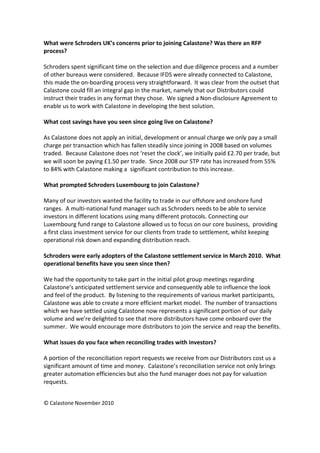Five Critical Threats Facing Nigel Farage's Reform UK Party

Table of Contents
Internal Divisions and Leadership Challenges
Internal conflicts and leadership struggles within Reform UK pose a serious threat to its unity and effectiveness. A cohesive party is essential for successful campaigning and governance, and Reform UK's internal dynamics are far from settled.
Factionalism and Competing Ideologies
Differing viewpoints within the party regarding policy and strategy are creating friction. This factionalism hinders the party's ability to present a united front and deliver a clear, consistent message to voters.
- Examples of internal disagreements: Debates over the party's stance on specific Brexit-related issues, disagreements on economic policy, and varying approaches to social issues.
- Potential splits: The risk of a significant faction leaving to form a new party or endorsing another political entity is a real possibility.
- Impact on public perception: Internal strife undermines public trust and confidence, projecting an image of disunity and instability.
Farage's Dominance and Succession Planning
Nigel Farage's strong personality and leadership have been central to Reform UK's initial success, but this dominance creates significant challenges. The lack of a clear succession plan leaves the party vulnerable to a potential leadership vacuum if Farage were to step down or become unavailable.
- Dependence on Farage's personality: The party's brand is heavily reliant on Farage's charisma and recognition, which makes it difficult to attract new support when he's not leading the charge.
- Potential leadership vacuum: The absence of a strong, well-known alternative leader could lead to a decline in support and organisational chaos.
- Challenges in attracting new leaders: Finding a figure capable of replicating Farage's appeal and commanding the same level of loyalty is a huge obstacle for Reform UK.
Competition from Established Parties
Reform UK faces stiff competition from established parties like the Conservatives and Labour, as well as other smaller parties vying for the same voter base. This competitive landscape significantly impacts the party's electoral prospects.
Electoral System Challenges
The UK's first-past-the-post electoral system presents a considerable challenge for Reform UK. This system favors larger parties and makes it difficult for smaller parties to gain proportional representation.
- Difficulty in securing seats: Winning seats in Parliament requires securing a majority in individual constituencies, which is difficult for a relatively new party with a dispersed voter base.
- Vote splitting: Reform UK's policies, particularly on Brexit, could potentially split votes with the Conservative Party, reducing the chance of either party winning seats in certain constituencies.
- Impact on broader political influence: A lack of parliamentary representation significantly limits Reform UK's ability to influence policy and shape the national political agenda.
Overlapping Policy Positions
The overlap between Reform UK's policies and those of the Conservatives, particularly on issues like Brexit, potentially confuses voters and dilutes the party's unique selling proposition.
- Specific policy areas where overlap exists: Both parties advocate for a firmer stance on immigration and certain aspects of economic policy.
- Potential for voters to choose established parties: Voters might opt for established parties, perceiving them as more capable of delivering on similar policies, despite Reform UK's populist appeal.
Maintaining Voter Engagement and Public Perception
Sustaining voter engagement and combatting negative public perception are critical for Reform UK's long-term viability. The party needs to build trust and present a consistent, positive image to attract and retain supporters.
Negative Media Coverage and Public Image
Critical media portrayals of Reform UK and its leader have impacted public perception and voter trust. Overcoming this negative image requires a concerted effort to improve communication and address public concerns.
- Examples of negative media coverage: Critiques of the party's stance on various social and economic issues and accusations of employing divisive rhetoric.
- Strategies to improve public image: A shift towards more moderate messaging, a greater emphasis on community outreach, and proactive engagement with fact-checkers could improve public perception.
Maintaining Momentum and Relevance
In a dynamic political environment, maintaining public interest and staying relevant is crucial. Reform UK needs to adapt its strategies and messaging to remain competitive and attract new voters.
- Strategies for long-term engagement: Developing a comprehensive digital strategy, engaging with a broader range of demographics, and exploring new policy areas beyond Brexit.
- Challenges in maintaining relevance: The party needs to move beyond its initial Brexit-centric platform to appeal to voters interested in a wider range of issues.
Funding and Resource Limitations
Financial constraints hinder Reform UK's ability to compete effectively with better-funded established parties. Securing adequate funding for campaigning and party operations is paramount to success.
Fundraising Difficulties
Securing sufficient funding presents a significant challenge for Reform UK. Compared to established parties, the party has limited access to traditional funding sources.
- Sources of funding: Reliance on individual donations, potentially limiting campaign reach and resource allocation.
- Comparison to other parties: Significant funding disparities between Reform UK and established parties significantly impact campaign effectiveness.
- Impact on campaign resources: Limited resources restrict campaign outreach, advertising, and overall operational effectiveness.
Lack of Infrastructure
Reform UK lacks a robust party infrastructure, including local branches and organizational support, essential for grassroots mobilization and voter outreach.
- Challenges in grassroots organization: Building a strong network of local activists and volunteers is essential for widespread engagement but requires significant effort and resources.
- Limited local presence: A weak local presence hinders the party's ability to connect directly with voters on a local level.
- Impact on voter outreach: Limited resources hamper effective voter registration drives and direct campaigning efforts.
Brexit's Evolving Impact and Shifting Political Landscape
The waning salience of Brexit and the shifting political landscape present challenges for Reform UK. The party needs to adapt its message and strategy to remain relevant.
Diminishing Brexit Salience
Brexit, the party's defining issue, is gradually losing prominence as a key political concern. This shift impacts Reform UK's core message and its ability to attract new voters.
- Changing public sentiment on Brexit: Voters are increasingly focused on other issues such as the cost of living, healthcare, and the environment.
- Implications for Reform UK's platform: The party needs to broaden its policy platform beyond Brexit to appeal to a wider voter base.
Adapting to a Changing Political Climate
Reform UK needs to demonstrate its ability to adapt to evolving political priorities and engage with emerging concerns. Maintaining a cohesive message while addressing new issues is crucial.
- Examples of policy adjustments: Expanding the party's policy positions to include issues beyond Brexit, like addressing cost of living concerns.
- Challenges in maintaining a cohesive message: Balancing the party's core principles with the need to adapt to changing political circumstances can be challenging.
Conclusion
Reform UK, while having tapped into significant voter discontent, faces a complex set of challenges. From internal divisions and competition from established parties to limitations in funding and the evolving political landscape, Nigel Farage’s party has a considerable uphill battle. Understanding these five critical threats is paramount to predicting its future trajectory. Whether Reform UK can overcome these obstacles and establish itself as a major force in British politics remains to be seen. Further analysis of these threats is crucial to understanding the future of the Reform UK party and the wider UK political scene. To stay informed on this evolving political landscape, continue to follow news and analysis of the Reform UK party and its challenges.

Featured Posts
-
 6 Key Factors Determining The Success Of A Harry Potter Remake
May 03, 2025
6 Key Factors Determining The Success Of A Harry Potter Remake
May 03, 2025 -
 Dr Shradha Malik Addressing The Mental Health Crisis Through Awareness
May 03, 2025
Dr Shradha Malik Addressing The Mental Health Crisis Through Awareness
May 03, 2025 -
 Sanctions Contre La Russie Macron Prepare De Nouvelles Actions
May 03, 2025
Sanctions Contre La Russie Macron Prepare De Nouvelles Actions
May 03, 2025 -
 Leaked Messages Reveal Deep Divisions Within Reform Party
May 03, 2025
Leaked Messages Reveal Deep Divisions Within Reform Party
May 03, 2025 -
 Schroders First Quarter Losses Clients Exit Equity Markets
May 03, 2025
Schroders First Quarter Losses Clients Exit Equity Markets
May 03, 2025
